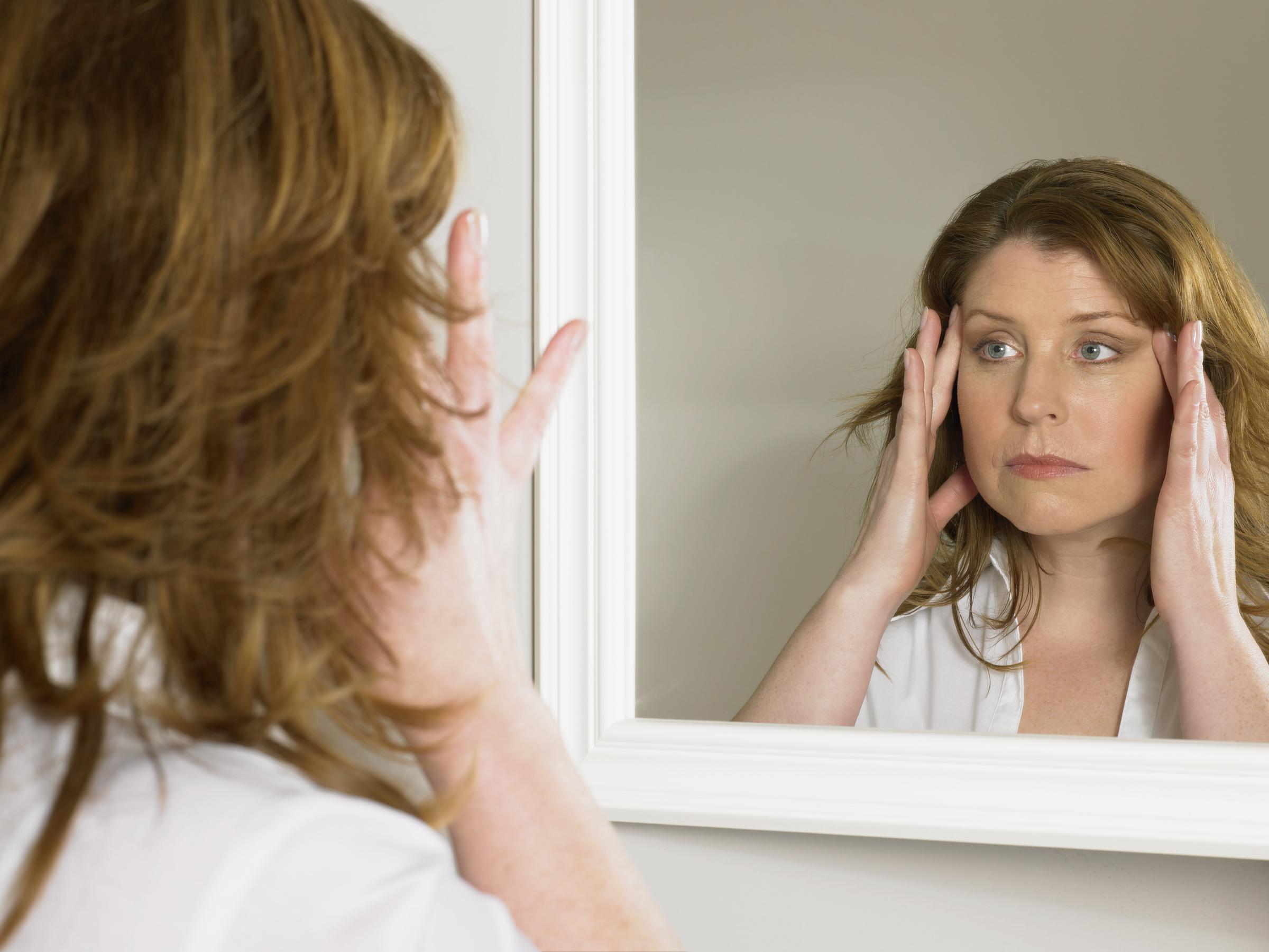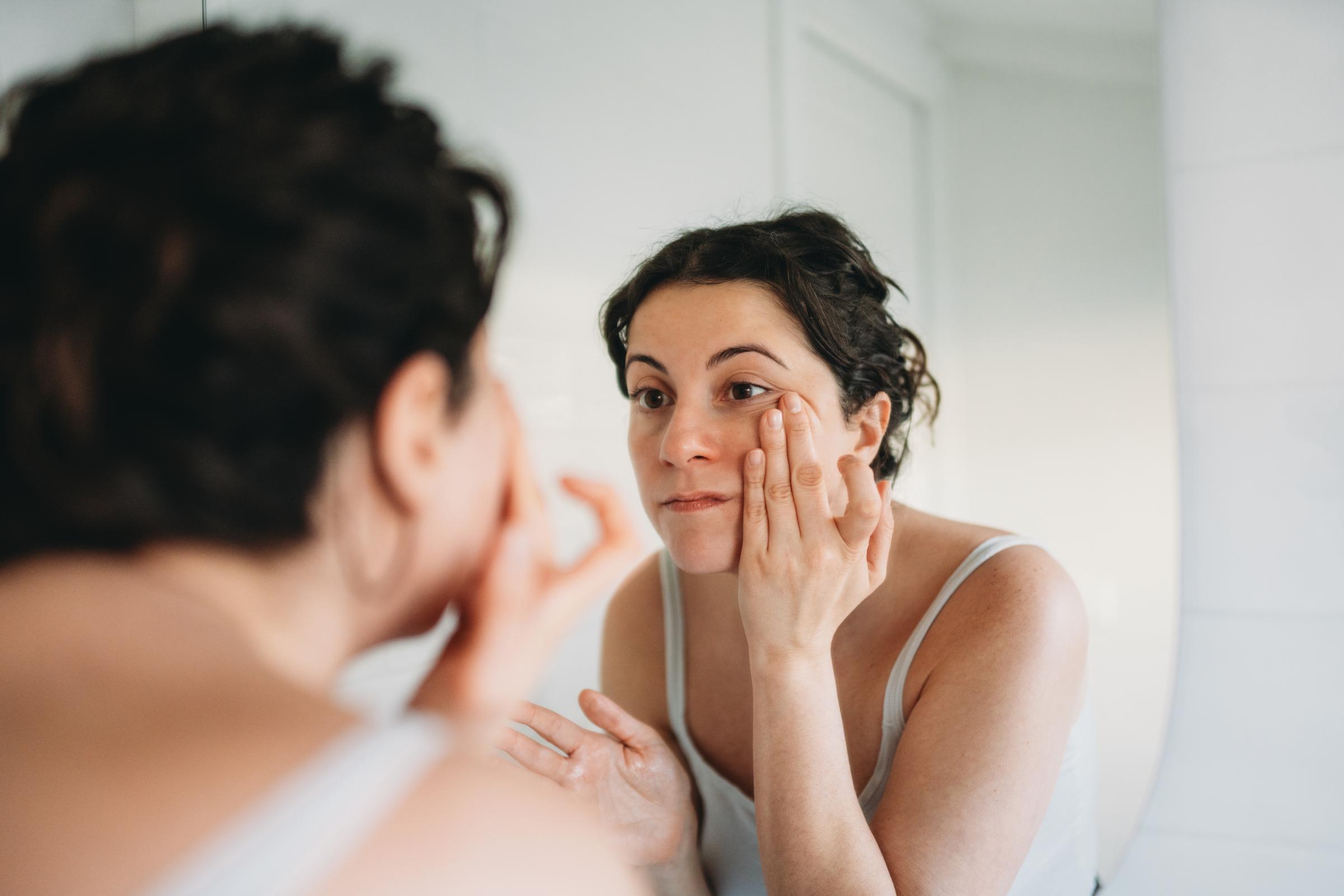
How Stress Shows on Your Face — and What to Do About It
There likely isn't a soul on earth that hasn't experienced some form of stress in their life. However, when stress is chronic and remains unattended for too long, it can start to show up in our bodies.
Stress — its various forms and intensities — is an unavoidable part of life. That's why it's crucial that we find ways to manage our stress to avoid overwhelming or debilitating our mental and emotional capacities.
However, when stress is left unattended for lengthy periods of time, it can have dire consequences on your overall health. It can also show up on your face, leading to dryness, wrinkles, and acne, just to name a few adverse effects.

A woman looking at herself in the mirror | Source: Getty Images
Why Stress Affects You Physiologically
Stress can disrupt the epidermis — the outermost layer of your skin — which is responsible for retaining moisture, keeping your skin hydrated, and protecting it from harmful microbes.
This leads to prolonged repair, leading to irritated skin, as well as chronic skin conditions including eczema, psoriasis, or wounds. Moreover, stress can worsen existing skin conditions. That's why an intact epidermal barrier is essential for healthy-looking skin.

A woman looking at herself in a mirror | Source: Getty Images
How Stress Shows Up On Your Face
From breakouts to dullness, your skin and hair often reflect what's happening inside your body. When tension builds, it can show up on your face in surprising ways. Here's how stress reveals itself:
- Acne: When you're stressed, your body produces more cortisol, which can overstimulate oil glands and clog pores. This leads to excess sebum, breakouts, and irritation.
- Bags: Under the EyesLack of sleep and constant tension can cause puffiness or dark circles. Stress weakens the delicate skin around your eyes, leading to sagging and swelling.
- Dry Skin: Stress can weaken your skin's protective barrier, making it harder to retain moisture. This often results in dryness, flakiness, and itchiness.
- Inflammation and Rashes: Ongoing stress can confuse your immune system, triggering redness, inflammation, or flare-ups of conditions like eczema or psoriasis.
- Wrinkles: Frequent stress can cause facial tension and repetitive movements, like furrowing your brow, that deepen fine lines. It also breaks down collagen, reducing elasticity.
- Graying Hair and Hair Loss: Chronic stress disrupts the hair’s growth cycle and accelerates pigment loss, causing premature graying or shedding.
- Other Facial Effects: Stress can also show up in subtle ways — from jaw clenching and teeth grinding to flushed cheeks or dry, chapped lips. These signs are reminders to slow down, relax your muscles, and prioritize self-care to restore balance to your body and skin.

A woman checking her face for wrinkles | Source: Getty Images
Managing Stress for Healthier Skin
In addition to addressing the physiological aspect of psychological stress, talking to someone you trust — whether it's a loved one or professional therapist — is also highly recommended to help you offload and navigate the emotional aspects causing your stress.
Alternatively, you can journal. Maintaining healthy lifestyle habits and scheduling time for winding down and relaxing is also recommended. Your skin is often a mirror of your emotional well-being.
While you can't eliminate stress entirely, you can manage it through rest, hydration, exercise, and mindfulness. Pairing these habits with a consistent skincare routine helps restore balance — leaving your complexion calmer, brighter, and more resilient over time.
The information in this article is not intended or implied to be a substitute for professional medical advice, diagnosis or treatment. All content, including text, and images contained on AmoMama.com, or available through AmoMama.com is for general information purposes only. AmoMama.com does not take responsibility for any action taken as a result of reading this article. Before undertaking any course of treatment please consult with your healthcare provider.
